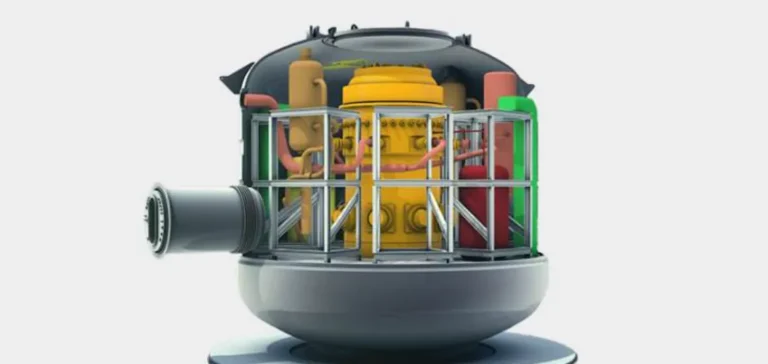The working group on small modular reactors (SMR) and advanced modular reactors (AMR), initiated by the French Energy Regulatory Commission (Commission de régulation de l’énergie – CRE), has delivered its findings after several months of analysis. Co-chaired by Anne-Marie Choho, Chief Executive Officer of SETEC, and François Lévêque, Professor of Economics at Mines Paris – PSL, the group identifies key levers for establishing a structured European industrial sector over the next twenty-five years.
Thermal applications identified as a priority
According to the hearings conducted, the most promising applications of SMRs lie in low-temperature heat production, notably for urban heating networks and industrial processes below 300°C. In these cases, the same reactor can produce two to three times more thermal energy than electricity, potentially lowering the cost per kilowatt-hour and enabling faster competitiveness.
So far, no global sector has achieved the necessary scale effect, hindered mainly by a lack of large-scale, coordinated funding. The report stresses the need for significant public support at national or European level to accelerate industrialisation. It also advocates for focusing investments on a limited number of promising projects to reduce financial and technological risks.
Separate timelines for SMRs and AMRs
Traditional small modular reactors could enter commercial deployment by the 2030s. Advanced modular reactors, with a wider range of applications, particularly for temperatures above 300°C, still require major research and development efforts. The group recommends anticipating the specific fuel supply needs and production infrastructure now to minimise delays towards 2040–2050.
The study also highlights the importance of territorial planning. Given their smaller footprint, SMRs could be located closer to consumption centres. However, their proximity to inhabited or industrial areas raises questions about public acceptability, project governance, and safety conditions in co-activity environments.
Training, lifecycle and waste management
Among the eleven recommendations issued, several focus on anticipating the technical and operational skill requirements. The industrialisation of these technologies will require specific profiles, which must be trained well ahead of deployment. The report calls for the immediate development of appropriate training programmes.
The issue of full lifecycle management, including radioactive waste and material handling, is also addressed. The group advises integrating storage and disposal costs into project planning from the outset. Producers must anticipate the terms of handover to the National Agency for Radioactive Waste Management (Agence nationale pour la gestion des déchets radioactifs – Andra) to prevent long-term bottlenecks.






















